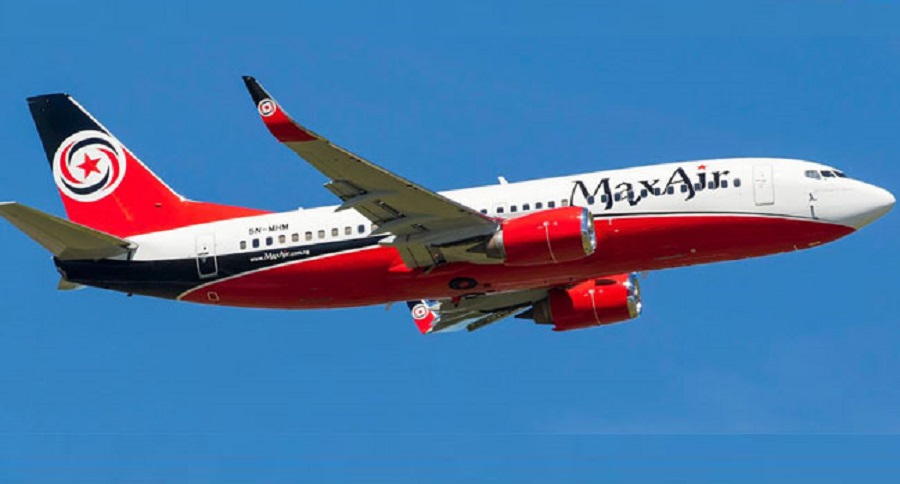General News
We’ll Continue To Open ‘Support Hubs’ Across Africa- Lits

By peter oluka
September, Uber celebrated four years on the African continent, and with more than 1.8 million active riders using the app since Uber’s launch in Johannesburg in September 2013, it’s clear that Uber has achieved a lot in a short timeframe.
Sub-Saharan Africa (SSA) has certainly benefitted from Uber’s arrival. Citizens have a new, reliable way to get around, entrepreneurs have found a new way to earn an income and cities have also benefitted – with possibly less cars on the road and therefore less carbon emissions.
A Look At Driver-Partners
In a region of high unemployment and stagnating economic prospects¹, Uber’s business partnership approach provides an accessible means for entrepreneurs to not only supplement their own income, but also to become small business owners, thereby helping to improve the lives and futures of individuals, families and communities.
The steadily growing number of Uber driver-partners in countries across the region is testament to the appeal of the model, because it creates real opportunities for local entrepreneurs. And as demand for rides also grows, so does the demand for driver-partners.
“Currently we have more than 29 000 driver-partners taking advantage of Uber’s earning opportunities. Drivers love being as flexible as they like; earning what they want, when they want, whether it’s a full-time entrepreneur or someone looking to supplement their income,” said Alon Lits, Uber general manager for Sub-Saharan Africa.
“Ongoing commitment to our driver-partners is a key priority; ensuring they receive the latest in technological innovations means they can be at the top of their game,” added Lits.
Uber continues to open support hubs across the continent to ensure driver-partners are well-equipped. Apart from existing hubs across the continent, three more of these state-of-the-art Greenlight Hubs were opened in Dar Es Salaam, Nairobi, Kampala, Kumasi and Lagos this year and, in addition to offering driver-partners technical and app support, Uber also offers information sessions and workshops to driver-partners.
A Look At Riders
The 1.8 million active riders using the app since Uber’s launch on the continent is testament to the new mode of transport that riders are embracing. Which is not hard to believe when with Uber, riders have access to safety features such as driver and vehicle identification, In-App help, GPS and feedback post each trip.
Uber has brought many benefits to riders that did not exist before Uber – from its GPS tracking and 24/7 support, to new technologies being added, such as ‘scheduled trips’, as the business develops.
Repeat Uber usage in South Africa is a prime example of shifting private transport perceptions. This month more than 25 000 South Africans each used Uber more than 10 times a week, which points to the increasing adoption of this tech-driven solution, not just as a leisure transport option, but also for work and business purposes.
And while riders and drivers benefit, Uber continues to keep social and environmental needs at the fore
This year alone, Uber has used its network to support and assist those in need. In March UberCommunity was quickly activated for the thousands of victims of the terrible Hout Bay fires in Cape Town, South Africa. UberCommunity allowed riders to request a car to collect items for donation to the people and animals impacted. In June, UberCommunity again assisted the thousands affected by the Cape storms and the Knysna-Plett fires in South Africa.
Similarly, in September last year, Uber assisted a local Nigerian business in Lagos after devastating destruction, by uniting with the local community to help Nuli Juice continue its operations. And across East Africa in early December, thousands of riders contributed to SOS Children’s Villages through an app donation dive dubbed UBERGIVING.
Importantly, Uber’s approach to shifting perspectives of how people in sub-Saharan Africa move around their cities is one of partnership with all stakeholders. Uber strives at all times to collaborate closely with local regulators to understand the challenges they are grappling with in their cities and then help them to develop workable and accessible solutions that benefit people and economies. It’s with this in mind that Uber has just launched UberMovement in Johannesburg, a new website to help urban planners, city leaders, third parties and the public better understand the transportation needs of their cities.
“Four years have gone by incredibly quickly. We’ve learnt and grown; we look back at our time in sub-Saharan Africa with pride because we’ve achieved so much and look forward to what’s next to come”, concludes Lits.
General News
Max Air to Resume Operations Two Months after Suspension

Max Air is set for resumption of service, two months after suspending flight operations due to a tyre burst incident involving one of its aircraft at the Mallam Aminu Kano International Airport (MAKIA), Kano.

A statement by the airline’s management said that the carrier would resume flight services on March 21, 2025.
When the airline suspended operations in January, it said that it would close domestic operations for three months.
With this, the airline was expected to resume in April.
However, the airline in a statement on Monday, said that its resumption was due to a successful operational evaluation, adding that this strategic pause allowed it to reinforce its commitment to safety, compliance and operational excellence.
The statement added: ‘During this period, we worked closely with aviation authorities to ensure that all statutory requirements were met, while enhancing our service delivery standards.
“As we return to the skies, passengers can expect improved travel experiences, increased efficiency, and the unwavering hospitality that Max Air is known for. We sincerely appreciate the patience and support of our valued customers during the temporary suspension.”
Max Air, had in January, suspended its domestic flight operations, following a tyre burst incident involving one of its aircraft in Kano.
The affected Boeing 737-400 aircraft, with registration number 5N-MBD, suffered a tyre burst while landing at MAKIA at about 10:51 p.m. on 28 January 2025.
Although all 53 passengers on board were evacuated safely, the aircraft was temporarily grounded before the Federal Airports Authority of Nigeria (FAAN), reopened the runway the next day.
During the suspension period, the Nigeria Civil Aviation Authority (NCAA) said that it would conduct a comprehensive safety and economic audit of the airline.
Mr. Michael Achimugu, director of Public Affairs and Consumer Protection, NCAA, in a statement released to the media, also stated that the regulatory body would support the Nigerian Safety Investigation Bureau’s (NSIB) probe while also conducting its own assessment of the airline.
He noted that the NCAA was already carrying out an organisational risk assessment for all scheduled airlines, including Max Air, before the latest incident.
“However, as a result of this incident, Max Air is suspending its domestic flight operations for three months, effective from midnight on 31 January 2025, to allow for an internal review of its operations.
“The safety audit will involve a re-inspection of Max Air’s organisation, procedures, personnel, and aircraft, as specified by the Nigeria Civil Aviation Regulations,” Achimugu had said.
He added that the economic audit would assess the airline’s financial health to ensure it can sustain safe flight operations.
General News
KPMG Reveals Africa’s Gaming Industry Recorded $1Bn Revenue in 2024

Africa’s gaming industry generated $1 billion in revenue in 2024, according to the 2025 Africa Games Industry report, published by KPMG in collaboration with Maliyo Games, highlighting efforts to digitize African culture through gaming.

The collaboration aims to improve the gaming industry in Nigeria by incorporating African culture into digital games.
Nigeria is Africa’s fastest-growing gaming market with revenue reaching $185 million in 2022. The country is positioned to play a central role in the continent’s gaming industry, and the report provides insights into the market’s evolution over the last 12 to 18 months.
Lawrence Amadi, partner, Tech Assurance, KPMG West Africa, speaking during the launch at the KPMG Tower in Lagos, recently, captured key developments in the industry and how gaming could be tailored to reflect African culture.
“Some of us may be familiar with Nintendo and Xbox, but what we are doing with this report is different. We are seeing the emergence of games that are custom-built for our culture. Games like WatKing and Downpour Drivers feature elements that people on the continent can relate to. This makes gaming more meaningful, and that is why this partnership is important,” he said.
Also emphasising the significance of the partnership, Amadi added, “The collaboration you see here brings KPMG and Maliyo Games together. Maliyo is a leading game development company in Africa, and we’ve chosen to partner with them because it is important to work with an industry front-runner.”
Hugo Obi, founder and CEO of Maliyo Games, highlighted the importance of developing games that resonate with African audiences.
“We are a mobile game development company based in Lagos, focused on creating African-inspired games. We take the games we play traditionally and digitize them. This is important because the games industry generates more revenue than the music and film industries combined,” Obi said.
He added that Africa generated $1 billion in gaming revenue in 2024. “That is how much money people are spending on games. And when I say games, I am not talking about gambling but the kind of games people play casually. The ability to create and develop games locally is important for economic growth,” he noted.
Obi also spoke about Maliyo’s collaboration with Disney to develop Watch Rising Chef, a cooking game centered around African cuisine. “Your family members abroad can now prepare jollof rice, fried chicken, and plantain on their mobile phones or tablets,” he said
He stressed the importance of building a gaming industry that is recognised and understood. “This industry is not mainstream yet. Many people play games, but very few understand how they are made or their economic impact. By partnering with KPMG, we aim to mainstream this knowledge and make it accessible,” he noted.
Beyond economic benefits, gaming also has positive social impacts. Obi pointed out that games enhance cognitive skills, problem-solving abilities, and social connections.
“Gaming is a form of entertainment that brings joy to players. In a world where people are constantly working and dealing with stress, gaming offers a form of escapism,” he added.
He also addressed misconceptions about gaming demographics. “Many assume that gaming is for children, but the data suggests otherwise. The average gamer is 18 years and 37 years old, male and female.
“This is because gaming devices are often registered under parents’ names. People of all ages engage in gaming, and there are different games for different age groups,” Obi said.
General News
Jumia Nigeria Kicks Off Tech Week 2025

Jumia, pan-African e-commerce platform, has launched its highly anticipated annual ‘Tech Week’ campaign, bringing consumers amazing deals on the latest gadgets and smart devices.

Under the theme “Future is in Your Hands,” this year’s campaign is designed to inspire Nigerians to embrace cutting-edge technology and innovation. Running from March 17th to March 30th, 2025, the campaign offers millions of customers access to unbeatable discounts on a wide range of tech essentials, including smartphones, laptops, home appliances, and entertainment systems.
In partnership with leading global and local brands such as Xiaomi, Oraimo, Binatone, Itel, SilverCrest, Ecoflow, Tecno, Realme, Skyrun, Century Appliances, Hisense, PZ Cussons, Unilever and Nivea, Jumia is committed to ensuring a seamless shopping experience with the best deals on high-quality tech products.
“We’re excited to present Jumia Tech Week 2025, a platform to enable Nigerians to have access to high-quality devices. With the rapid growth in digital adoption across the country, this campaign is designed to put the latest innovations within reach, helping customers stay connected, productive, and entertained. Our strategic partnerships with top brands allow us to deliver premium products at the best prices, making tech upgrades accessible to all,” said Sunil Natraj, CEO, Jumia Nigeria.
Commenting on the partnership with Jumia for Tech Week, Sylvie Zeng, Head of E-Commerce, Xiaomi, said “Xiaomi is focused on bringing cutting-edge technology to everyone, and Jumia Tech Week 2025 is the ultimate opportunity to experience our diverse range of innovative products at unbeatable prices.
“From the high-performance Poco series to the reliable and stylish Redmi smartphones, and a wide selection of AIoT devices designed to enhance your smart home, Xiaomi offers powerful, beautifully crafted technology for every need. This Tech Week, don’t miss out on the best deals to upgrade your lifestyle with Xiaomi, exclusively on Jumia!”
With over 142 million active internet subscribers reported in January 2025, Nigeria continues to witness an accelerated digital transformation. Jumia Tech Week caters to this dynamic shift, offering consumers a trusted platform to explore and acquire the latest tech essentials conveniently.
Beyond amazing discounts, Jumia Tech Week 2025 features exclusive flash sales, brand days, exciting giveaways, and interactive games throughout the campaign. Consumers can enjoy a seamless online shopping experience with secure payment options and pay-on-delivery services, ensuring accessibility for all.

 General News1 day ago
General News1 day agoJumia Nigeria Kicks Off Tech Week 2025

 E-Financial1 day ago
E-Financial1 day agoSEC Voids Mainland Trust’s Registration, Suspends Centurion Registrars

 E-Business1 day ago
E-Business1 day agoNITDA Expands iHATCH Initiative to Drive Job Creation, Economic Diversification

 Telecom1 day ago
Telecom1 day agoBridging Nigeria’s Digital Divide: ITU and UK-FCDO Fuel Rural Connectivity Revolution

 Telecom1 day ago
Telecom1 day agoTransforming Lives Through Advocacy: Princess Omoyemwen Inspires Change at MTN’s Go MAD Activation in Benin

 Telecom9 hours ago
Telecom9 hours agoMTN’s Earnings Hammered by Free Falling Naira in Nigeria

 Telecom9 hours ago
Telecom9 hours agoGalaxy Backbone Unveils a 4year Integrated Digital Transformation Strategic Plan

 E-Business9 hours ago
E-Business9 hours agoFG Partners Cyberpedia to Fight Misinformation with AI













